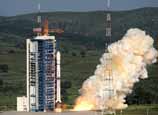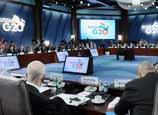
China is working extensively to unlock its domestic solar potential by pushing small-scale distributed projects. The State Council's detailed guideline to facilitate the development of the solar products' industry, issued on July 15, is a major boost in this regard. In fact, the solar industry has featured twice on the agenda of China's cabinet in just more than a month.
On June 14, Premier Li Keqiang chaired a regular State Council work session, where the solar industry's development was one of two subjects discussed (the other being controlling air pollution). The session came up with a six-point strategy, highlighting the urgency of distributed solar power projects and full grid connection, and called for optimizing financial incentives for distributed solar energy generation.
The July 15 guideline goes one step further in implementing the high-level strategy. The first thing that stands out in the guideline is the raising of the 2015 solar installation target to 35 gigawatts, a seven-fold jump from what the government set at the beginning of the 12th Five-Year Plan (2011-15). To achieve this target, the authorities aim to increase installed solar power generation capacity by at least 10 GW a year from 2013 to 2015. This is an ambitious goal considering that China's current accumulative solar generation capacity in GW barely touches double digits.
Chinese policymakers are banking on the large untapped distributed solar power market to raise demand. The guideline explains how distributed projects will be supported.
First, it calls for improved grid cooperation. Distributed energy grid connection used to be the biggest problem for prospective project developers, largely because of an uncooperative State Grid Company. But the SGC's attitude has undergone a 360 degree shift since October, when it issued its guideline for distributed solar energy grid connection, allowing distributed solar installations to be connected to the grid with no extra infrastructure cost.
After the SGC issued its guideline, Greenpeace became one of the first applicants for grid connection. On April 16, the organization connected its 5-kW project to the grid without any hitch. With the grid connection process running well, the State Council guideline has come as another strong policy assurance for project developers.
Second, the State Council has vowed to simplify the application process for projects. The existing process is aimed solely at utility-scale land-based solar farms. Under this arrangement, the National Development and Reform Commission has to give the go ahead for the operation of all solar projects regardless of their scale. For distributed project developers, who are normally individual households or small business owners, this means time-consuming paper work, which in the past deterred many applicants.
But the State Council guideline changes the provision for distributed projects from "being approved" by the NDRC to simply "notifying" the NDRC, significantly reducing the time needed to complete the process.
Third, a series of special programs will be introduced to scale up distributed installation, the most prominent being the one to establish 100 distributed solar demonstration zones. Apart from individual households, installations will also be encouraged at public places, industrial parks and commercial areas.
Last, unlike in the past, the State Council requires electricity generated from distributed solar projects to be included in the national electricity production and consumption accounting system.
With all these promising signs, one is bound to look at the financial incentives. In the guideline, the State Council proposes two measures to support distributed projects. A feed-in-tariff for distributed projects is likely to be announced, according to information available to Greenpeace as an existing solar project owner.
The State Council is also likely to increase the renewable energy surcharge in accordance with the pace of the solar industry's development. The current charge is 0.008 yuan for every kilowatt-hour (kWh) consumed by end users, which is channeled to the Renewable Energy Fund that is dedicated to financing the renewable energy fee-in-tariff. Since there is a significant gap between the REF and the demand for renewable energy generation, a lot of renewable energy project owners are getting delayed payments. There is an urgent need to resolve this financial gap.
Speculation is rife that the surcharge will be doubled to 0.016 yuan per kWh. If that indeed happens, it will relieve the pressure on the REF and secure financial returns for project developers.
Let us hope the State Council guideline is the beginning of more promising policies and that sunnier days are ahead for China's distributed solar power industry.
The author is a Greenpeace climate and energy campaigner.
















 Hebei woman latest case of H7N9
Hebei woman latest case of H7N9


![]()
